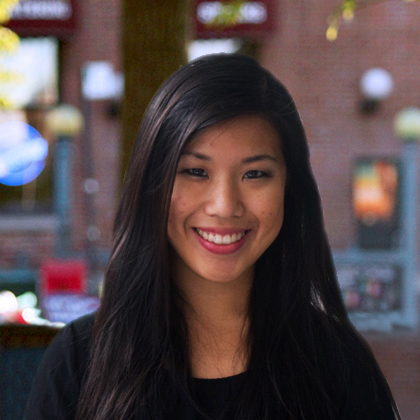Animal Activism Becomes More Imperative in Age of Coronavirus
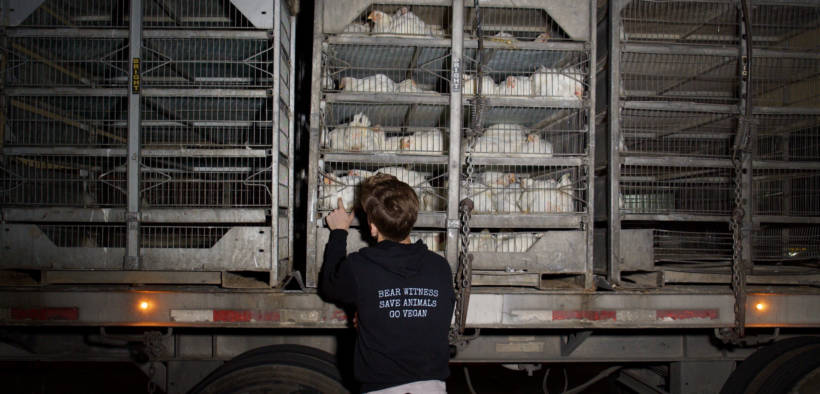
Raising awareness about the risks of continuing “agribusiness as usual” has become more important than ever.
A typical weekend for 26-year-old Juvel Ingal is perhaps atypical for most. On Saturdays, she spends her time at the Third Street Promenade in Santa Monica or the Hollywood Walk of Fame, showing factory farm footage to the public. On Sundays, in the industrial city of Vernon, California, she normally hauls gallons of water for dehydrated pigs; they are held captive and afraid in trucks before being killed in a slaughterhouse. Ingal also likes to devote time to protesting horse races and volunteering at Love Always, a local animal sanctuary.
Due to the global pandemic and its attendant requirements for social distancing, the usual activities of Ingal and other animal rights activists have come to an abrupt halt. Ingal was dismayed when she first learned that L.A. Animal Save, which organizes events like the weekly pig vigil in Vernon, was canceling its events.
“I feel uneasy not being outside of [the] Farmer John slaughterhouse,” says Ingal. “Not being there means even less piglets [are] being momentarily comforted and relieved of thirst.” As the world hits “pause” on many everyday activities, activists must also cease in-person gatherings to contain the spread of the coronavirus and comply with shelter-in-place orders.
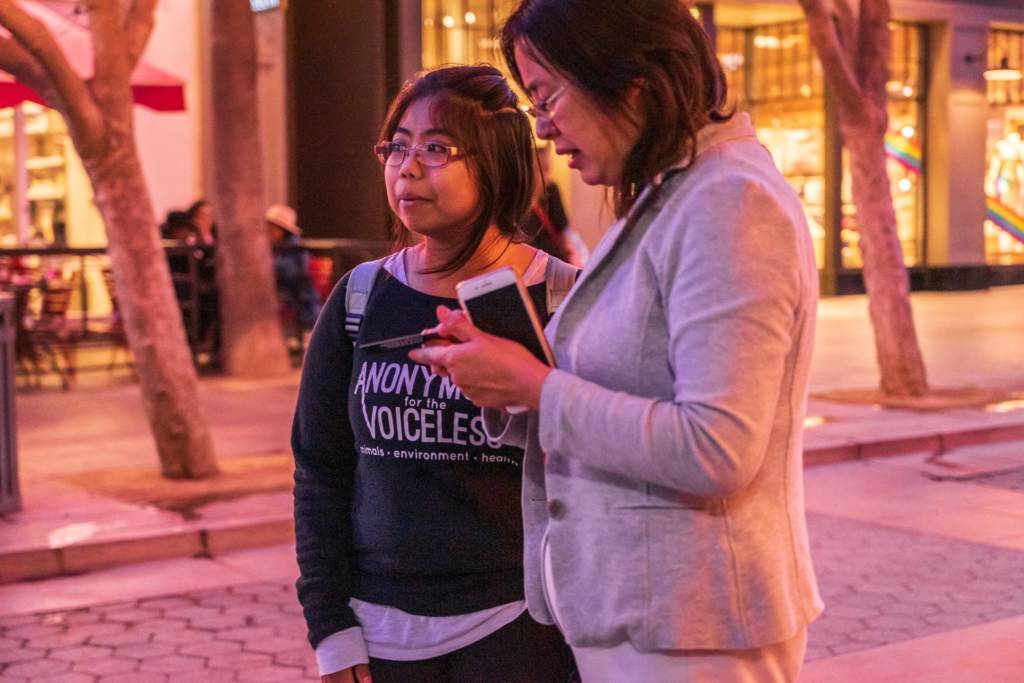
Before shelter-in-place orders took effect, animal rights activist Juvel Ingal (left) regularly participated in street outreach. (Photo credit: Salomon Peña)
With an exponential increase in the number of COVID-19 cases worldwide, animal rights organizations have been compelled to cancel or postpone major demonstration events. Animal Rebellion, a civil disobedience group that occupied Smithfields Market in London last October, has replaced a major action in May with the promise of “alternative, creative plans for May and June.” The street outreach nonprofit organization Anonymous for the Voiceless has canceled its annual tour, which would have encompassed 18 cities across 10 countries, and postponed to next year major events in London, New York City, and Amsterdam. The group encourages its 800 chapters to heed the advice of public health officials by staying home and postponing local demonstrations. In place of the annual Animal Liberation Conference in Berkeley, its organizer, the animal liberation group Direct Action Everywhere, is hosting free online assemblies through the end of May. Other large-scale events, such as National Animal Rights Day and the Animal Rights National Conference, are still tentatively scheduled.
Given that humans’ exploitation of animals is the root cause of the coronavirus, activists are now focusing on raising awareness about the connections between animal agriculture and zoonotic diseases—diseases that originate in animals and spread to humans. Ed Winters, known by his activist moniker Earthling Ed, released a video that emphasizes COVID-19’s likely origin in a multi-species wet market; in the video, he implores viewers to reflect on their individual consumption habits. The activist group Direct Action Everywhere, which received attention for its “Let Dairy Die” protests held during the Democratic primaries, has launched a “Cancel Animal Ag” campaign to draw public officials’ attention to the links between animal agriculture and pandemics. Two animal rights nonprofit organizations, Animal Equality and People for the Ethical Treatment of Animals (PETA), are circulating petitions calling for the United Nations and the World Health Organization to immediately ban wet markets worldwide. According to the U.S. Centers for Disease Control and Prevention, about 75 percent of recently emerging infectious diseases that affect humans began as diseases in animals; as such, raising awareness about the risks of continuing “agribusiness as usual” is more important than ever.
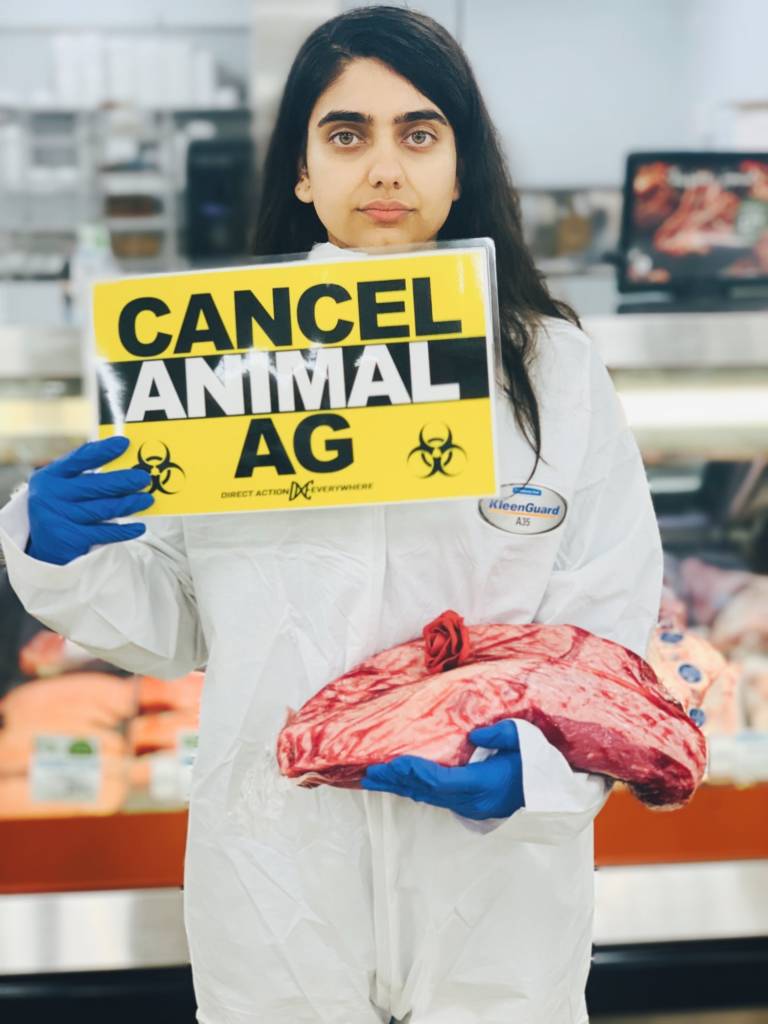
Priya Sawhney, co-founder of Direct Action Everywhere, strives to raise awareness of the links between animal agriculture and deadly pandemics. (Direct Action Everywhere)
Despite the restrictions imposed by mandatory social distancing, animal rights organizations are finding innovative ways to encourage supporters to speak out about animal exploitation. The Humane League, which advocates on behalf of animals by targeting industrial food producers, recently launched a series of online meetups and is enabling more digital actions, such as the signing of petitions and posting of advocacy content on social media. A collective called Animal Resistance University—an “anti-oppression organization focused on anti-speciesism”—is offering online workshops for activists, covering topics such as police liaising, media training, communication skills, and lobbying. PETA has even organized in-person events that adhered to the restrictions of social distancing: recent protests against SeaWorld featured activists standing six feet apart and carrying signs with QR codes as a means of distributing virtual leaflets. PETA, as the world’s largest animal rights organization, is also communicating via billboards, flying banners over beaches in Florida, and providing virtual training to budding student activists. According to PETA Senior Strategist Faith Robinson, the advocacy group is continuing its existing work while also initiating new types of campaigns. She says, “We want to use this time to encourage people to avoid meat and go vegan.”
Animal sanctuaries, which rescue neglected animals from factory farms, are among the organizations obligated to temporarily suspend public events and visits. The lost revenue opportunities present challenges for many sanctuaries.
“The calculus around revenue has to change. We’ve made tough choices around postponing projects and we’ve had to reprioritize the budget,” says Jeff Lydon, Managing Director of Woodstock Farm Sanctuary. “Without important revenue streams that come from onsite work, we have to be even more agile and creative.”
To increase online engagement and encourage donations from potential supporters, Woodstock Farm Sanctuary has begun hosting digital tours, which they call Woodstock Live, for social media followers. VINE Sanctuary in Springfield, Vermont, is live-streaming and emailing daily briefings to share intimate stories and photos of the sanctuary’s nearly 700 animal residents. “
What we’re trying to do is take care of animal advocates during this hard time,” asserts VINE Sanctuary Co-Founder Pattrice Jones. “But this is also a kind of vegan outreach, as people are sharing the videos and newsletters with their own social circles.”
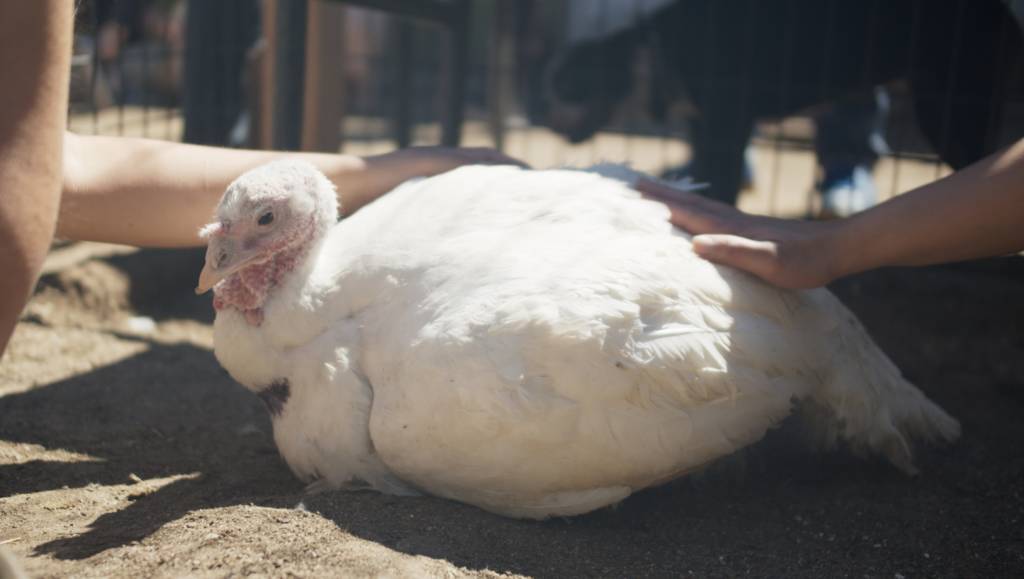
Sanctuaries, including Love Always in San Fernando, California, face financial challenges as they cancel on-site visits and events. (Photo credit: Ronell Gatchalian)
Access to food has become particularly uncertain for vulnerable populations—especially those who are low-income, homeless, or elderly—since the onset of the pandemic. Animal rights and vegan organizations are refocusing their daily operations to provide basic necessities, such as food and protective equipment, to those with the greatest needs. In New York City, which by itself has more coronavirus cases than any other country and where the virus is disproportionately killing black and Latino people, the Vegan Activist Alliance is collaborating with Chilis on Wheels to deliver plant-based groceries, hot meals, and table-top pantries to some of the city’s poorest neighborhoods and homeless communities. Through a partnership with Community Solidarity called “Plants to the People,” the nonprofit organization Mercy For Animals has donated 2,000 plant-based meals to needy communities in New York.
Made in Hackney, a U.K.-based nonprofit group that previously hosted plant-based community cooking classes, is now temporarily offering and delivering free vegan meals to vulnerable community members in East London. Aside from food relief, the open rescue group Meat the Victims in Germany is donating protective equipment—originally intended for activists occupying slaughterhouses, where they film and rescue animals—to hospitals experiencing supply shortages. So many individuals and vulnerable populations are struggling to satisfy their essential needs; animal rights organizations are doing crucial work by shifting their operations to support the people who need help the most.
As this latest zoonotic disease spreads fear and uncertainty about the stability of daily life, many animal rights advocates are pursuing activism with increasing senses of urgency. While their tactics are far-reaching and varied, animal advocates are united in their efforts to end humans’ exploitation of animals and prevent the next zoonotic disease.
“There are no designated locations or times for [us] to be activists,” says Ingal. “We have a plethora of opportunities to be active. Social media has become such a powerful platform, so we can…utilize it in amplifying the plights of animals.”

